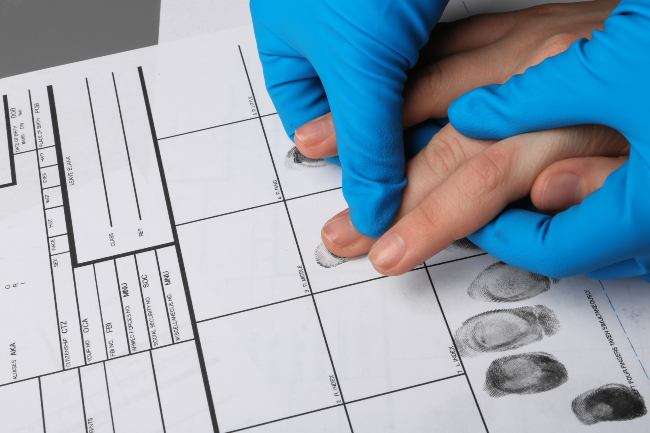Keep reading for what this change would mean for the people of Missouri.

If passed, the bill would amend the Missouri Constitution. It would make it legal for people over the age of 21 to buy, possess, consume, manufacture, deliver, and sell marijuana for personal use. Personal cultivation of up to six mature plants, six immature plants, and six clones would be permitted under the law, but only with a registration card. According to the amendment, licenses would be awarded through a lottery system, with an equal number of licenses distributed to each district.
Missouri’s Cannabis Ballot Measure
Missouri’s amendment would legalize adult-use marijuana, tax it at 6%, and require criminal records to be automatically expunged for non-violent marijuana-related offenses. This would bring at least $40.8 million in revenue to the state annually, $13.8 million of which would remain local.

Alan Zagier, the Communications Manager for Legal MO 2022, highlighted the potential for expunged marijuana-related convictions by those who may still be on probation or parole, even after a conviction. KSDK believes that this could provide a fresh start and help reduce the number of Missourians arrested for low level drug offenses each year.
Cannabis Licenses Under This Ballot Measure
There are also provisions to assist small business owners in obtaining licenses. A new license category allows wholesale facilities to cultivate marijuana as well as manufacture cannabis products such as edibles, concentrates, topicals, and vapes. Businesses must meet at least one of the following requirements in order to obtain a wholesale license:
- Have a net worth under $250,000 and have brought in an income below 250% of the federal poverty rate for at least three years in the past decade. Currently, the federal poverty rate is $13,590 earned annually for a single person or $27,750 for a family of four
- Have a disability card from the U.S. Department of Veterans Affairs issued because of an injury sustained due to their military service
- Have been arrested, prosecuted, or convicted of a non-violent offense or have a child or spouse who meets that criterion
- Live in an area with high poverty, unemployment, or imprisonment rates due to the War on Drugs
- Have graduated from an unaccredited school district or live in an area with a district of that nature for 3 of the past 5 years
After submitting the signatures, John Payne, Campaign Manager for Legal Missouri 2022, the group pushing for recreational marijuana legalization in the state, posted a triumphant message online: “WE DID IT!!!”
“This monumental effort would not have been possible without the assistance of everyone who pitched in to help with donations, signature collection, and community education,” Payne wrote.
But, he claims, the fight is far from over. Even if the petition received enough signatures to be placed on the ballot, Missouri voters must still cast their ballots. According to Payne, Legal Missouri 2022 is strategizing and planning its upcoming campaign.
“A new future is on the horizon,” Payne predicted.
Medical Marijuana in Missouri
Missouri became the 31st state to legalize medical marijuana in 2018. There were three options on the ballot that year to legalize medical marijuana. Amendment 2, which was approved, emphasizes medical marijuana access for military veterans. As a result of the amendment, patients suffering from cancer, HIV, epilepsy, post-traumatic stress disorder, and other serious medical conditions now have access to medical cannabis. In Missouri, medical marijuana is taxed at 4%, with the proceeds going to a fund for veterans’ health and services.

The new amendment would strengthen the state’s existing medical marijuana program, which has nearly 150,000 registered patients and caregivers. The proposed law extends the validity of medical patient and caregiver ID cards to three years rather than one, and keeps the cost of the card at $25. Licenses to grow medical marijuana at home will also have a three-year expiration period instead of one, and the fee for that card will be reduced from $100 to $50.
Current medical-only marijuana facilities would be able to convert their licenses to serve both medical and recreational marijuana users. Supporters of the amendment claim that it will reduce black market marijuana sales.
Voters to Decide This Fall
Missouri The Certificate of Sufficient Petition has been signed by Secretary of State John Ashcroft. Legal Missouri 2022 collected a total of 390,000 signatures. Despite the fact that two congressional districts received insufficient valid signatures, the measure was placed on the ballot. Some districts received thousands more signatures than were deemed valid; for example, District 5 received 78,777 signatures but only 35,834 were validated. That was still more than the 28,458 votes required for Amendment XIV to be placed on the ballot.
“I strongly encourage Missourians to research and educate themselves on any ballot initiative,” Ashcroft said in a statement. “Initiative 2022-059 [to legalize recreational marijuana] on the November ballot is particularly lengthy and should be rejected.”
There are also legalization measures up for a November vote in South Dakota and Maryland. Arkansas, North Dakota, and Oklahoma all have voters working to try to get a measure up for a vote.
